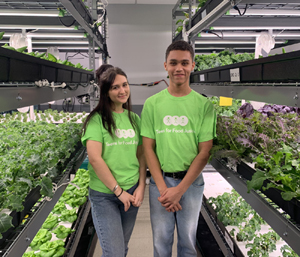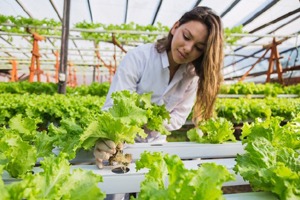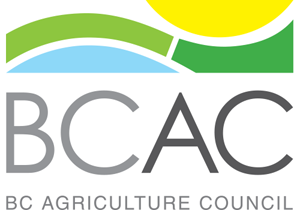Monday June 26, 2023 | VICTORIA, BC [Updated 4:10 pm]
by Mary P Brooke | Island Social Trends | Food Security News Archive
A new workforce initiative will support British Columbia’s agriculture and food industry in recruiting and retaining the workers who will help provide a stable food supply for a growing population in B.C. and around the world.
“The demand for B.C. food and beverage products continues to grow, and we need to address labour challenges now, so we can continue to rely on B.C.’s agriculture and food sector in the future,” said Pam Alexis, Minister of Agriculture and Food in a statement today.
“Our government is working hard to increase the number of B.C. agriculture workers so we will have a safe and resilient local food supply for generations to come.”

Agriculture is a big sector:
The B.C. agriculture, food and seafood sector had combined revenues of more than $18 billion in 2021, and were 12% higher than the previous record of $16.1 billion in 2020.
B.C. exported a record $5.1 billion in agriculture, seafood, and processed food and beverage products to 151 different international markets in 2021.
B.C. produces more than 200 primary agriculture products and about 100 fish, shellfish and marine plant species.
In 2021, there were more than 79,000 agriculture, seafood, and food and beverage processing sector jobs in B.C.
Farming employment has had little appeal:
Over the past several years it has become evident that working on farms is not a desirable career choice for young Canadians. In a technological fast-moving world the idea of working on a traditional farm has had little appeal.
As well, the income level just isn’t there in most cases, for young adults to start a reasonably stable or comfortable modern life let alone get a farm started in the first place (due to land costs).
The agri-tech industry is one area where that might change — where science and technology in large indoor environments are where Z-Gen talents can shine.
And today’s youth seem to come embedded with a deep resolve to deal with environment and social sustainability issues, which is well-applied in the food production sector.
Recruitment & retention:
The Agriculture and Food Workforce Development Initiative will provide as much as $15 million to help strengthen the workforce by:
- improving recruitment and retention of domestic workers and supporting targeted training to develop a skilled workforce;
- implementing labour-market development strategies and workforce plans; and
- supporting the health and well-being of the agriculture and food workforce.
Applications will open for winter 2023-2024:
The Recruitment, Retention and Innovative Skills and Training Program is rolling out:
- Adopting new innovative skills and training programs for the agriculture and food sector to recruit and train workers;
- Development/delivery of tools, resources or technologies that support worker recruitment, retention and/or co-ordination of seasonal workers;
- Pilot initiatives that reduce an identified barrier to participation in the workforce (e.g. transportation, flexible scheduling).
- The program will open for applications in winter 2023-24.
Supporting AgSafe:
AgSafe is the first organization supported under the new program and will receive $755,000 to expand mental-health services to the B.C. agriculture sector. This funding will support the expansion of AgSafe’s mental wellness in agriculture initiative that encourages producers to reach out for help and offers mental wellness resources for the agricultural community.
The Agriculture and Food Workforce Development Initiative is funded by the Ministry of Social Development and Poverty Reduction, and delivered by the Investment Agriculture Foundation of BC.
“AgSafe has made the mental health and well-being of B.C.’s producers a top priority and we are thankful for the support of our partners. We know that the agriculture industry is experiencing a mental-health crisis – compounded by floods, wildfires, heat domes and drought, says Wendy Bennett, executive director, AgSafe BC.
“With this funding, we will be able to expand our mental wellness initiative to develop and deliver more much-needed resources and tools that are specific to agriculture,” says Bennett.
Poverty reduction:
This initiative is undertaken as well by the Ministry of Social Development and Poverty Reduction.
“We all want people to have access to nutritious, healthy food. That’s why we’ve partnered with Investment Agriculture Foundation to fund the support people need to find and keep good stable jobs in the high-demand food and agriculture sector,” says Sheila Malcolmson, Minister of Social Development and Poverty Reduction.
Mental health component:
Research has found that Canadian farmers face higher levels of mental distress than the general public and are generally less likely to seek help.
A 2021 study found that 76% of Canadian farmers are classified as experiencing perceived moderate or high stress scores and one in four have thoughts of suicide.
Farming work sector:
“The ongoing labour shortage in the agriculture sector will be detrimental to the livelihoods of thousands of farmers and ranchers in our province if we don’t act now. In fact, just half a decade ago, we faced a shortage of just over 3,000 agriculture workers, but by the end of this decade, the number of unfilled jobs is expected to increase dramatically, nearly five-fold, to over 15,000 missing workers in the agriculture sector,” says David Mutz, berry farmer, BC Agriculture Council director, and chair of BC Agriculture Council’s labour committee.
BC Agriculture Council welcomes this initiative as a strategic contribution to shifting our agriculture workforce in the direction of meeting the market demand for workers and ensuring food security for British Columbians,” says Mutz.
“Supporting producers and processors is supporting skills and training, and health and well-being of those producers and processors across generations,” says Jack DeWit, chair, Investment Agriculture Foundation of BC (IAF).
“IAF looks forward to delivering this funding, working with the Ministry of Social Development and Poverty Reduction and the Ministry of Agriculture and Food to further refine and implement the programs to support the goal of improving labour resources in B.C.’s agriculture sector,” says DeWit.
===== GOVERNMENT LINKS:
Further details about the Agriculture and Food Workforce Development Initiative and anticipated program launches and application deadlines are available here: https://iafbc.ca/
AgSafe mental health wellness resources: https://agsafebc.ca/mental-wellness/









